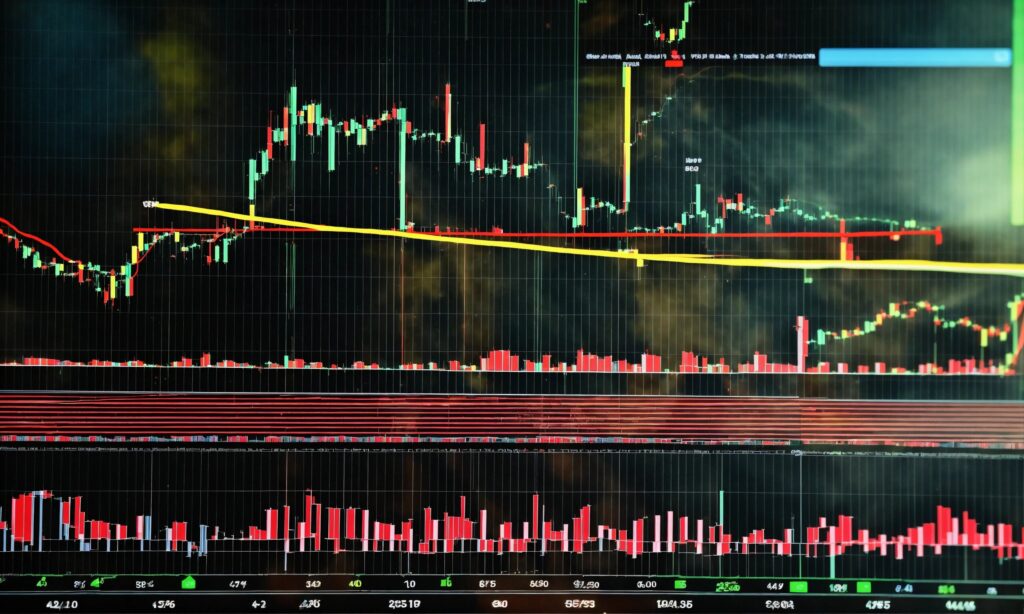Stock market volatility refers to the degree of variation in the prices of stocks over time. In 2024, understanding this concept is crucial for investors, whether you’re new to the market or have been investing for years. Volatility can be a source of risk but also opportunity. This article will break down what stock market volatility is, why it happens, and how you can navigate it effectively.
What is Stock Market Volatility?
Stock market volatility is a measure of how much the prices of stocks fluctuate. High volatility means that stock prices are changing rapidly and unpredictably. Low volatility indicates that stock prices are relatively stable. Volatility is often measured by the standard deviation of returns or through indices like the VIX, known as the “fear gauge.”
Why Does Volatility Occur?
Volatility can be caused by several factors. Economic events such as interest rate changes, inflation, and geopolitical tensions can lead to increased volatility. Company-specific news, such as earnings reports or management changes, can also impact stock prices. Understanding these factors helps investors anticipate and react to market changes.
Economic Factors Affecting Volatility
In 2024, global economic conditions play a significant role in market volatility. For instance, central banks might adjust interest rates to control inflation or stimulate growth. These changes can cause stock prices to swing. Additionally, economic data like employment figures and GDP growth can influence market sentiment and contribute to volatility.

Geopolitical Events and Their Impact
Geopolitical events such as trade disputes, wars, or political instability can lead to sudden shifts in the stock market. For example, tensions between major economies might result in trade barriers or sanctions, affecting global trade and investments. Investors need to stay informed about these events as they can lead to increased market volatility.
Company-Specific News
News about individual companies can cause their stock prices to fluctuate. For example, a company reporting better-than-expected earnings might see its stock price rise, while poor earnings could lead to a decline. Major announcements, such as mergers and acquisitions or changes in leadership, can also impact a company’s stock price and contribute to volatility.
How to Manage Volatility
Managing volatility involves strategies to protect your investments and capitalize on opportunities. Diversification is one key approach. By spreading investments across different sectors and asset classes, you can reduce the impact of a single volatile asset on your overall portfolio. Additionally, setting stop-loss orders can help limit losses if a stock price falls below a certain level.
Long-Term Investing vs. Short-Term Trading
Long-term investing and short-term trading are two different approaches to dealing with volatility. Long-term investors typically hold onto their investments through periods of volatility, focusing on the long-term growth potential of their portfolio. Short-term traders, on the other hand, aim to profit from price swings and may frequently buy and sell stocks based on short-term trends.

The Role of Technology in Understanding Volatility
Technology plays a significant role in analyzing and understanding market volatility. Advanced software and algorithms can track stock prices and market trends in real-time, providing valuable insights for investors. Tools like financial news apps and market analysis platforms can help you stay informed and make better investment decisions.
Tips for New Investors
If you’re new to investing, navigating volatility can seem daunting. Start by educating yourself about market fundamentals and developing a clear investment strategy. It’s also wise to consult with financial advisors who can provide personalized advice based on your risk tolerance and investment goals. Remember, staying calm and making informed decisions is key to managing market volatility effectively.
Conclusion
Understanding stock market volatility in 2024 is essential for making informed investment decisions. By recognizing the factors that contribute to volatility and employing strategies to manage it, you can better navigate the ups and downs of the market. Whether you’re a seasoned investor or just starting, staying informed and being prepared will help you handle market fluctuations and make the most of your investment opportunities.
Exploring Investment Strategies During Volatility
When faced with high volatility, adapting your investment strategy can help you manage risks and seize opportunities. One common strategy is to invest in defensive stocks or sectors that are less sensitive to economic downturns, such as utilities or consumer staples. These industries often provide stable returns even during market turbulence. Another strategy is to use dollar-cost averaging, where you invest a fixed amount of money at regular intervals regardless of market conditions. This approach helps reduce the impact of market fluctuations and lowers the average cost of your investments over time.
The Impact of Interest Rates on Volatility
Interest rates play a significant role in stock market volatility. When central banks raise interest rates to combat inflation, borrowing costs increase, which can lead to reduced consumer spending and lower corporate profits. This can cause stock prices to fall. Conversely, when interest rates are lowered to stimulate the economy, borrowing becomes cheaper, potentially boosting stock prices. Monitoring interest rate trends and central bank announcements can provide valuable insights into potential market movements.
Psychological Factors Influencing Volatility
Market volatility is not just about numbers and data; psychological factors also play a crucial role. Investor sentiment, driven by emotions such as fear and greed, can amplify market swings. For instance, during periods of uncertainty, fear can lead to panic selling, exacerbating market declines. Conversely, during bullish periods, overconfidence can drive prices to unsustainable levels. Understanding these psychological influences can help investors make more rational decisions and avoid being swayed by market noise.
Volatility and Diversification
Diversification is a fundamental strategy for managing volatility. By spreading your investments across various asset classes, industries, and geographic regions, you can reduce the overall risk of your portfolio. For example, combining stocks with bonds or real estate investments can balance out the effects of market volatility. During periods of high volatility, having a diversified portfolio can help stabilize returns and minimize potential losses.
The Role of Volatility Indices
Volatility indices, such as the VIX, measure the market’s expectation of future volatility based on options prices. These indices can provide insights into market sentiment and potential future movements. A rising VIX often indicates increased market fear and uncertainty, while a falling VIX suggests a more stable outlook. Monitoring volatility indices can help you gauge market conditions and adjust your investment strategy accordingly.
Long-Term vs. Short-Term Investment Goals
Your investment goals play a crucial role in how you handle volatility. If you have long-term goals, such as retirement, you may be better positioned to weather short-term fluctuations and focus on long-term growth. On the other hand, if your goals are short-term, such as saving for a down payment on a house, you might need to be more cautious and adjust your investments based on current market conditions. Aligning your investment strategy with your goals can help you navigate volatility more effectively.
The Importance of Staying Informed
Staying informed about market trends, economic indicators, and geopolitical events is essential for managing volatility. Regularly reading financial news, following market analysts, and reviewing your investment portfolio can help you stay updated and make informed decisions. Additionally, using financial tools and resources can provide valuable insights into market conditions and help you better understand volatility.
Seeking Professional Advice
If navigating stock market volatility feels overwhelming, consider seeking advice from financial professionals. Financial advisors and portfolio managers can provide personalized guidance based on your individual risk tolerance, investment goals, and market conditions. They can help you develop a strategy to manage volatility and make adjustments as needed to protect and grow your investments.
Conclusion
Understanding stock market volatility in 2024 involves recognizing the factors that contribute to market fluctuations and employing strategies to manage them effectively. By staying informed, diversifying your investments, and aligning your strategy with your goals, you can better navigate the ups and downs of the market. Remember, volatility is a natural part of investing, and with the right approach, you can turn it into an opportunity for growth.
